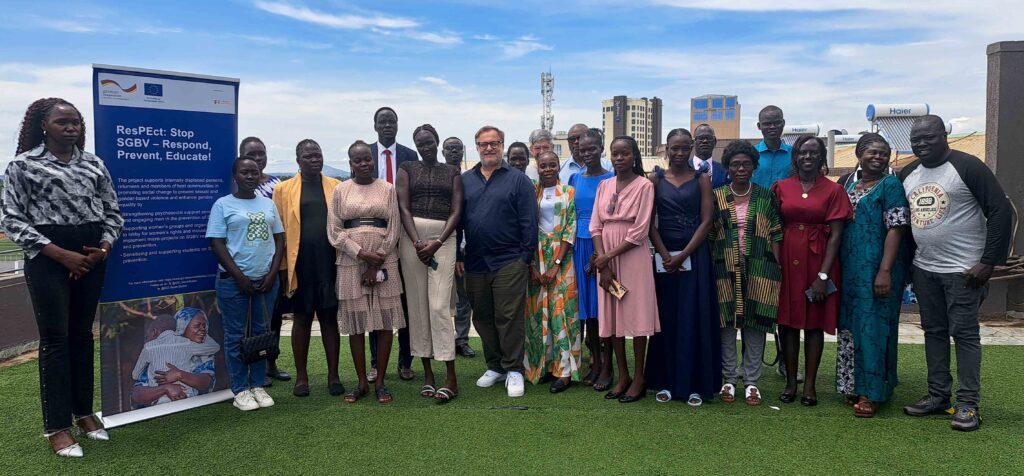In a country where survivors of gender-based violence often remain unheard, journalists and civil society actors are working together to change the narrative, starting with how stories are told.
Twenty-five journalists and civil society actors from across South Sudan came together in Juba from 23 to 25 September for a joint workshop aimed at strengthening ethical, survivor-sensitive radio reporting on gender-based violence (GBV), a statement from GIZ said on Monday.
“The three-day exchange combined training, reflection, and collaboration between media and civil society to explore practical ways to improve coverage of GBV,” the statement reads in part. “Participants examined the root causes of GBV in the South Sudanese context and discussed how to produce content that protects survivors’ dignity, safety, and confidentiality. Sessions also introduced production formats such as feature reports, dramas, talk shows, and public service announcements (PSAs).”
The workshop marked the start of the ResPEct GBV Radio Project, implemented by Media in Cooperation and Transition (MiCT). The new initiative is part of the project ResPEct: Stop SGBV – Respond, Prevent Educate! It is co-funded by the German Development Cooperation and the European Union and implemented by Deutsche Gesellschaft für Internationale Zusammenarbeit (GIZ) GmbH. The ResPEct project aims to address the high prevalence of SGBV in South Sudan by promoting social change concerning gender roles and norms and the protection of women and girls.
“Radio is one of the few tools that can reach remote communities across South Sudan,” said
Klaas Glenewinkel, Managing Director of Media in Cooperation and Transition (MiCT). “This workshop was a chance for journalists and CSOs to find new ways of working together to produce content that is ethical, locally grounded, and relevant to the people most affected.”
Meanwhile, Ayen Achol Deng, Communications and Gender Specialist at Deutsche Gesellschaft für Internationale Zusammenarbeit (GIZ), highlighted the scale of the challenge, saying an estimated 65 percent of women and girls in South Sudan have experienced sexual or physical violence.
“Improving media coverage is one part of the wider effort to prevent violence and strengthen civic understanding,” she said.
The collaborative nature of the workshop stood out to many participants. William Mabor, a journalist from Radio Good News, said the sessions pushed him to rethink how GBV stories are told.
“I have learned how to report in a way that does not cause harm,” he said. “We must take this knowledge back to our stations and produce work that respects the survivors’ voices.”
Over the coming nine months, the project will support the production and national broadcast of 100 original radio programmes on GBV-related issues. These are expected to feature diverse voices, encourage community-level dialogue, and strengthen links between the media and civil society in preventing and responding to violence.
The ResPEct GBV Radio Project workshop was carried out in collaboration with the Union of Journalists of South Sudan (UJOSS).




